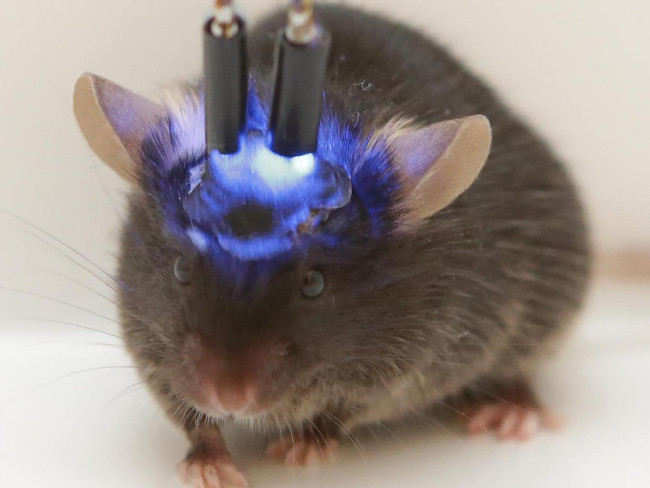Transplanting a mini-human brain into mice causes concern about smart new hybrids and increasingly more human-like
The fact that scientists implant human brain tissue into the head of mice and rats is certainly not able to make mice think like humans in the future. But many researchers still worry that this will help mice to increase awareness, leading to unpredictable moral problems.
- This woman found a way to control sperm by the brain, creating works of art
- For the first time in history, scientists successfully connected the human brain to the Internet
- Scientists read the bird's brain and know what it is about to sing

The experiment of mini-human brain implants in mice sparked a moral debate among researchers.(Artwork: Business Insider.)
The researchers used a mini brain (organoid), the cell mass that acts as a miniature and simplified version of an in vitro organ to simulate the characteristics of the real organ to implant. brain of the mouse.
Currently, mini brains are produced from stem cells with electrical impulses and can develop new neurons, but even the most complex mini brains cannot reach the thinking ability.

Transverse slices of artificial mini brains.
However, Hongjun, a researcher at the University of Pennsylvania, said that the ability of animals to increase their awareness after being implanted with human brain tissue is a possibility. Because the most recent research results indicate that the mini brain can successfully integrate into the animal's brain. This means that in the future how animals think may be affected by human tissue.
Mini brains are opening up the revolution in human brain development and neurological diseases like Alzheimer's. But researchers need more mini brain implants in experimental animals to create more complex mini brains to better simulate the conditions of the human brain. Opponents of the experiment say that after each mini brain implant, they will become smarter, the level of awareness increases and even more like people.
You should read it
- ★ Breaking into the bank holds 1,000 human brains in the UK
- ★ The human body is stronger than the supercomputer?
- ★ For the first time in history, scientists successfully connected the human brain to the Internet
- ★ Intel's AI chip is nearly as complex as the mouse brain, 100 billion nerve connections
- ★ Deciphering the mystery of consciousness, the human brain can work in 11 dimensions